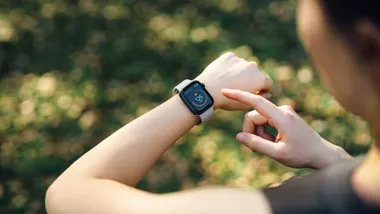If you are anything like us then you will often find it impossible to stop at just one biscuit. But researchers suggest it’s not just a question of willpower (or lack of) but actually has to do with the specific kind of sugar that goes into many biscuits.
Glucose-fructose syrup, based on the so-called “good sugar” found in fruit, has been found to actually trick the brain into thinking you need more food, the UK’s Daily Mail reported.
Win: $2500 cash and a day in the Australian Women’s Weekly kitchen
Health & Wellbeing Is sugar addictive?
The syrup, which is widely used in fizzy drinks and confectionary, but also in less obviously bad foodstuffs including cereal, is cheap to make and helps give products a longer shelf life meaning it is very attractive to manufacturers.
But the backlash in the US against so-called “Devil’s candy” has even led some manufacturers to revert to more costly sugar.
But it is not just the syrup version, fructose itself is under the spotlight and is blamed for increasing appetites and creating health problems.
“When we eat sugar, our body releases insulin which tells the brain that we have had enough to eat,” Dr Carel Le Roux, a consultant in metabolic medicine at Imperial College London, told the Daily Mail.
“High insulin levels are one of the factors that dampen the appetite. But fructose doesn’t trigger as much of an insulin response as regular sugar, so the brain won’t get the message that you are full.”
However, as well as tricking you into eating more, researchers recently found glucose-fructose syrup can also have more serious side effects. A recent study at the University of California, Davis, found that fruit sugar is more easily turned into fat in the liver than glucose, increasing the risk of getting fat deposits in the liver, which is linked to liver disease and type 2 diabetes.
The study’s lead scientist, Dr Kimber Stanhope, says that this is the first evidence that fructose increases heart disease and diabetes independently, rather than simply weight gain.
“We didn’t see any of these changes in the people eating glucose,” Dr Stanhope told the Daily Mail.
However, don’t let this put you off eating fruit. Experts advise that, as with most things, everything is fine in moderation, just beware of eating too much or drinking fruit juice excessively.
Related video
Ursula Arens from the British Dietetic Association warns of the dangers of too much fruit juice. “Treat it with caution, because it’s a very fast way to get not only a lot of fructose but a lot of calories,” she told the Daily Mail.
“It’s always better to eat fruit whole if you are concerned about your weight — you can gulp down a large glass of orange juice in seconds, but eating the equivalent of six whole oranges would take ages as you would have to peel them,” she said.
And always check the labels of biscuits and cereal so you are aware of their glucose-fructose syrup content.
Or you could always avoid processed biscuits completely by making your own from one of our delicious recipes in the related links section above.
Your say: Do you find you can’t stop at one biscuit or that fruit doesn’t fill you up? Share your thoughts below.











